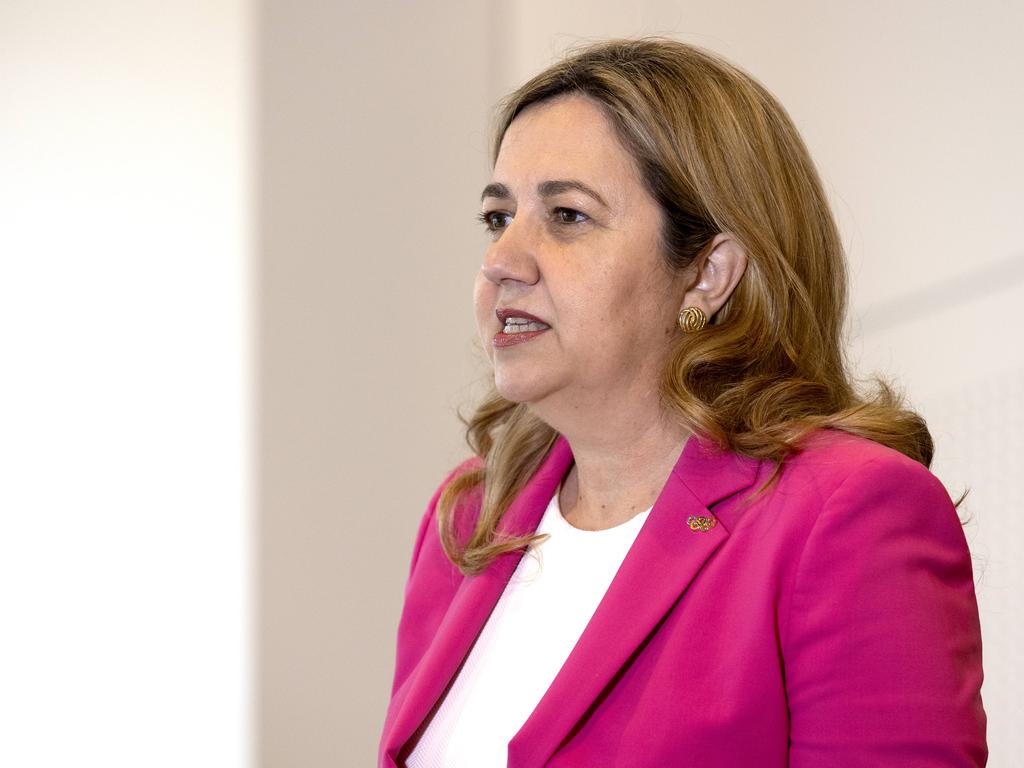
Psychiatrist Patrick McGorry has said that such statistics are the “tip of a much larger iceberg”, with Mission Australia’s most recent Youth Survey showing that one in four Australian young people are now experiencing significant mental distress.

While the isolation of pandemic lockdowns is suspected to have had a deleterious impact on vulnerable individuals, the decline in youth mental health can be traced back to 2012, long before the world had ever heard of Covid-19. Research psychologists Jean Twenge and Jonathan Haidt argue that mobile phones and social media have destroyed the mental resilience of an entire generation. But an important epidemiological study just released indicates that political beliefs may be playing a role in the mental health crisis as well.
A study published in the journal Social Science & Medicine-Mental Health, led by the epidemiologist Catherine Gimbrone, identified a stark relationship between political ideology and mental distress in young people in the US.
After looking at a sample of 86,138, young people, progressive political ideology was correlated with much higher rates of mood and anxiety disorders. The study concluded that “Beginning in approximately 2010 and continuing through 2018, female (progressive) adolescents reported the largest changes in depressive affect, self-esteem, self-derogation, and loneliness. Male conservative adolescents reported the smallest corresponding changes.”

The study was conducted on American, not Australian, youth, so it may not be generalisable to our population. Issues that might worry American youth, such as school shootings and access to reproductive healthcare, thankfully do not concern us. It is quite possible that a similar study conducted locally would not find such pronounced differences according to political ideology.
Nevertheless, Australia does import much of American culture, for better or worse. Australian youth use Facebook, Instagram, Twitter and Snapchat. Australian teenagers marched for #MeToo and the Black Lives Matter movement after the death of George Floyd. And like their American counterparts, Australian youth are worried about housing affordability and climate change.
Psychologists who study generational changes in mental health are quick to point out that it is difficult to tease apart the effects of phone use, social media, and political ideology. One might become progressive after being immersed in an online community, or one might be driven to an online community because of pre-existing beliefs. But theoretically speaking, it is not hard to see why adoption of progressive beliefs might undermine a person’s mental health, fuelling anxiety.
At the heart of today’s progressive ideology is the notion that we are not in control of our own lives. The theory of “Intersectionality” presupposes that we live in a world of interlocking systems of oppression of racism, sexism, classism, ableism, colonialism, imperialism, and most recently, cis-heteronormativity.
Progressive ideology teaches young people to be anxious about words and ideas, leading to the adoption of “trigger-warnings” and “safe-spaces”. It teaches young people that their group identity is the most important thing about them, and that their stories of victimisation are more valuable than hard work or sacrifice. Progressive ideology teaches young people that they don’t need to grow in order to improve their lives – it’s the world that needs to grow to accommodate them.
Some researchers believe that anxiety leads to a defence-oriented mindset. And that those who are anxious are less likely to take the risks that make life meaningful. If the world is full of physical and psychological threats, we may recoil from a job interview, a romantic opportunity, starting a business, or even a family.
This becomes a self-fulfilling prophecy: the more we feel anxious, the more we retreat from life – which in turn leads to failure, and ultimately more anxiety.
Conservative political beliefs, on the other hand, provide a ballast against such thinking. While conservatives may reject concepts such as “white privilege”, they certainly understand that life can be unfair. But they also believe that individuals can overcome challenges and chart their own life course. Conservatives tend to circumspect towards “structural” theories of society.
Conservative values also promote gratitude. While progressives may view gratitude for the “status quo” as misguided, conservatives (either through life experience or the study of history) understand that things can always get worse. That is why there is an emphasis on preserving institutions, even if they are not perfect.

From marriage, to the family unit, to the rule of law and democracy, conservatives tend to see that what has worked will likely again work in the future, and so it is our duty to future generations to preserve such traditions.
Of course, no political ideology holds a monopoly on wisdom, and not all traditions are worth keeping. Some of the issues that young people are anxious about, such as their inability to afford housing, are worthy of serious political attention, and cannot be dismissed as complaints of the “woke”.
But even in the worst of situations, we can always hold onto something that makes life meaningful. In Man’s Search for Meaning about his experiences in Nazi prison camps, Victor Frankl remembers: “We who lived in concentration camps can remember the men who walked through the huts comforting others, giving away their last piece of bread. They may have been few in number, but they offer sufficient proof that everything can be taken from a man but one thing: the last of the human freedoms – to choose one’s attitude in any given set of circumstances, to choose one’s own way.”
Young people who are immersed in social media today are being taught the opposite – that systems of oppression shape their lives, that their circumstances matter more than their attitude, and that they cannot choose their own way.
Claire Lehmann is founding editor of online magazine Quillette.








Victoria’s coroner is sounding the alarm about a rising rate of suicide among young people in his state. In the three months leading up to March, 13 young people died by their own hand, when in recent years the number of young suicides would have been between two and six over the same period of time.